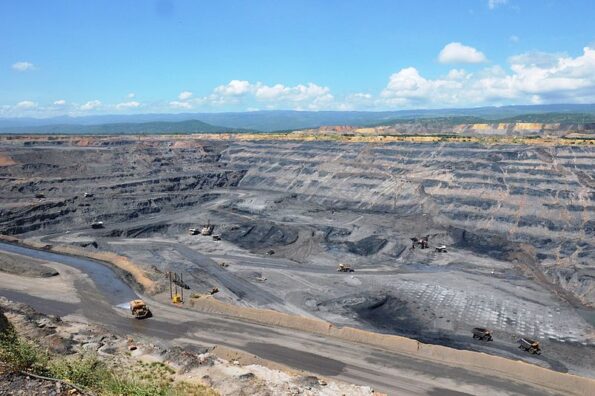
On 3 August 2020, London Mining Network and member groups Colombia Solidarity Campaign and TerraJusta, together with allies in Europe and North America, wrote to Cerrejon Coal and its multinational owners Anglo American, BHP and Glencore, to express our support for mine workers’ union Sintracarbon in its current dispute with Cerrejon management over new shift patterns that the company wants to impose. Sintracarbon has long supported the demands of rural communities displaced or under pressure from mine expansion, and communities have responded by supporting Sintracarbon in its demands for better conditions in the mine.
We are writing to express our solidarity with mine workers’ union Sintracarbon in their struggle to defend their current work shift cycle and their demands during the 2020 Collective Bargaining process.
The change demanded by Cerrejon Coal from the current 2×1-2×3 rotating shift to 7×3-7×4 would inevitably lead to greater worker fatigue, endangering health and safety.
Through collective bargaining, Sintracarbón achieved the 2×1-2×3 shift to secure the physical health of the workers. Their work involves exposure to coal dust and the physical and chemical hazards that it represents, as well as exposure to noise, vibration, ergonomic stress and fatigue, to mention just a few of the risks.
In addition, the shift Cerrejon is proposing has serious implications for the families of the workers and their relationships, failing to take into account their role as fathers and husbands and members of their extended family.
Taking all this in to account, a continuous 7-day 12 hour shift is a threat to the physical and mental health of the mining workers. We can fully understand why Sintracarbon is calling it a ‘Shift of Death’.
We understand that the change to this new shift cycle would also enable the company to dismiss a quarter of the workforce and we share the union’s opposition to job losses. In addition, we see how the proposal presented by Cerrejon to Sintracarbon on 25 July is an attempt to undermine the current conditions of the workers even further by eliminating, reducing or freezing benefits related to health, transport, education and direct contracting, among others.
We understand that Cerrejon needs to respond to changes in coal market conditions which are themselves affected by the growing awareness of the need to cut carbon emissions. However, punishing the workforce is not the way to do this. We believe that Cerrejon should instead concentrate on developing a just mine closure plan in discussion with Sintracarbon and with the communities affected by the mine. Whether the mine continues in operation for the full term of its licence or not, when mining comes to an end the people of La Guajira, including those working for Cerrejon Coal, need to be able to benefit from a planned change to an ecologically sustainable economy aimed at benefiting local people rather than distant shareholders.
Yours sincerely,
Avi Chomsky, Salem State University, USA
Diana Salazar, Colombia Solidarity Campaign, UK
Emma Banks, Vanderbilt University, USA
Jacqueline Gilbert, USA
Olga Lucía Mendoza Quiroga, Activista de Derechos Humanos, Spain
Richard Solly, London Mining Network, UK
Stephan Suhner, ASK Arbeitsgruppe Schweiz-Kolumbien, Switzerland
Steve Striffler, University of Massachusetts, Boston, USA
Thomas McDonagh, TerraJusta, Bolivia/Ireland/UK


